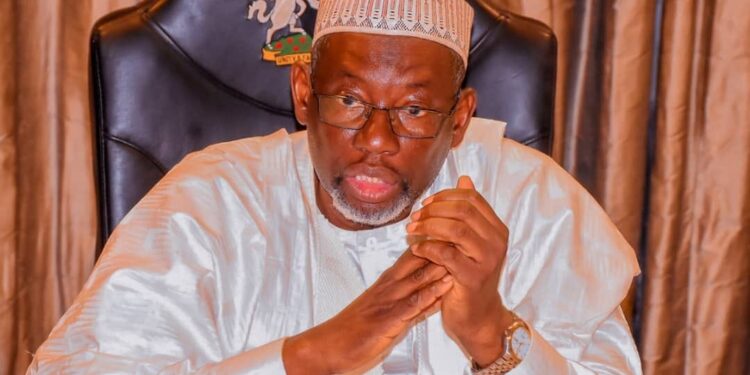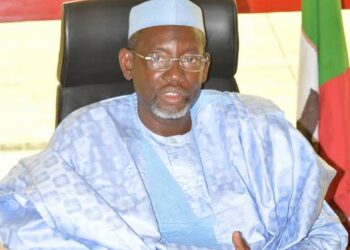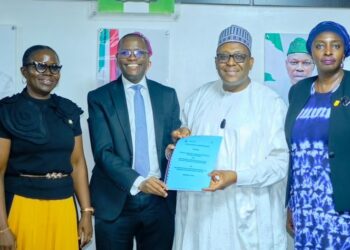The Governor of Jigawa state, Umar Namadi has said that the current policies of the federal government on agriculture especially wheat production are capable of ensuring self-sufficiency in wheat production and even for exports.
Governor Umar Namadi of Jigawa State disclosed this following a briefing with President Bola Ahmed Tinubu on various developmental matters in the state.
During the discussion, Governor Namadi expressed gratitude to the President for earmarking 40,000 hectares of land in the state for the National Wheat Development Programme.
Governor Namadi outlined the ambitious target of producing two million tonnes of wheat through both the National Wheat Development Programme and the state’s initiative, aiming for food sufficiency and potential export.
He highlighted President Tinubu’s supportive stance, emphasizing the assurance of full backing to ensure the successful realization of these targets.
In November 2023, the Nigerian Government initiated the dry season program in Jigawa, allocating a total of 100,000 hectares for wheat farming nationwide, with Jigawa State receiving 40,000 hectares specifically for the program.
Governor Namadi conveyed President Tinubu’s commitment to providing all necessary support to the state government in achieving its outlined objectives.
What the Governor said
He stated,
- “We are number one in wheat in Nigeria. So, the issue is we have already made a difference because we are number one. And then today like I told you out of 120,000 hectares for Nigeria, Jigawa State alone is given 40,000 hectares and that shows that we are making a difference.”
On whether Nigeria could attain wheat sufficiency in Nigeria, he said:
- “Certainly, we will. In Jigawa State, we have a FADAMA land of over 400,000 hectares. So, that is only FADAMA land that we can cultivate both in rainy and dry season.”
When asked about the possibility of exporting the wheat, Namadi said:
- “Certainly, we are going to export wheat over time We’re doing the first one, and then after this one, we’re going for rice, and the next one, we’re going to wheat, that’s how the cycle will continue to go. We’re going to have food sufficiency and we’ll have”
What you should know
Nigeria has been deficient in wheat production relying on imports to meet local demands.
However, the war between Russia and Ukraine coupled with the collapse of the Black Sea grain deal created a supply shortfall which increased wheat prices across the world.
Between October 2022 and September 2023, Nigeria spent around N970 billion on wheat imports.
In the first nine months of 2023, Nigeria spent around N783.26 billion on wheat imports mainly from Latvia, Canada, Lithuania, the United States, Poland, and Argentina.























